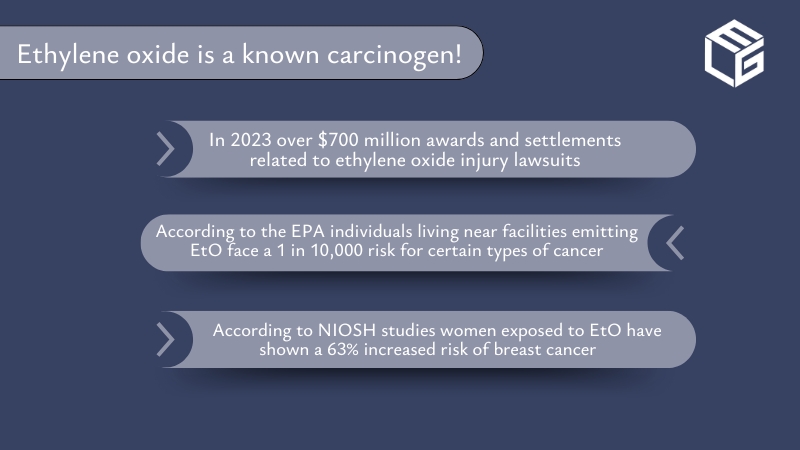-
About »
- Insulin MDL
-
Cases »
- Diseases
- Testimonials
- Government
- Contact
- Get Help Now
-

Located at 1135 Highway 33 South in New Tazewell, Tennessee, Royal Sterilization Systems is operated by DeRoyal Industries. Since 1973, this facility has been conducting ethylene oxide sterilization operations continuously, making it one of the longest-running commercial sterilization sites in the region. The site serves as a significant contract sterilizer for the U.S. medical device industry, operating specialized preconditioning rooms, sterilization chambers, and aeration rooms for processing sensitive medical equipment that cannot withstand steam or radiation sterilization methods. Nevertheless, decades of using ethylene oxide have created serious health risks for workers and residents in New Tazewell. This site has been identified by the EPA as having some of the highest levels of ethylene oxide exposure in the nation. If you have worked at DeRoyal's sterilization facility or lived in the New Tazewell area and have been diagnosed with cancer, you may be eligible for compensation.
Claim ApplicationEPA site-specific risk assessments using recent emissions data and modeling have revealed some of the most alarming ethylene oxide exposure levels documented at any U.S. sterilization facility. EPA findings show that parts of the New Tazewell community face estimated lifetime cancer risks reaching up to 3,000 in a million, which is 30 times higher than the EPA's "acceptable" risk threshold of 100 in a million. The census tract where DeRoyal's facility is located shows ethylene oxide emissions contributing to nearly half (45.8%) of the overall environmental cancer risk in the area.
The Tennessee Department of Health launched a formal cancer cluster investigation in New Tazewell in response to concerns from educators and community residents about unusually high cancer rates. The facility operates in Claiborne County, which is among Tennessee's highest cancer incidence regions, raising serious concerns about the long-term health impacts of DeRoyal's ethylene oxide operations.
EPA documents show that previous regulations failed to address ethylene oxide "fugitive emissions" from unregulated sources inside sterilization plants, such as leaks from valves, doors, and aeration rooms. While the company has used acid water scrubbers and catalytic oxidizers for some emission control and added additional controls following a 2020-2021 facility expansion, these measures came only after decades of largely uncontrolled ethylene oxide releases into the New Tazewell community.
If you have developed cancer after working at Royal Sterilization Systems or living in the New Tazewell community, you may be entitled to compensation. Since the EPA found significant cancer risks and the facility operated for nearly 50 years, many individuals may have been exposed to ethylene oxide.
There is evidence that DeRoyal may be liable for EtO exposure due to the ongoing cancer cluster investigation and the EPA's documentation of some of the highest levels of ethylene oxide in the country. Our attorneys understand the difficulties involved in proving ethylene oxide exposure cases and can assist with evaluating whether your health condition is linked to emissions from this facility. Contact us if you have concerns about potential exposure and would like to learn more about your legal rights.